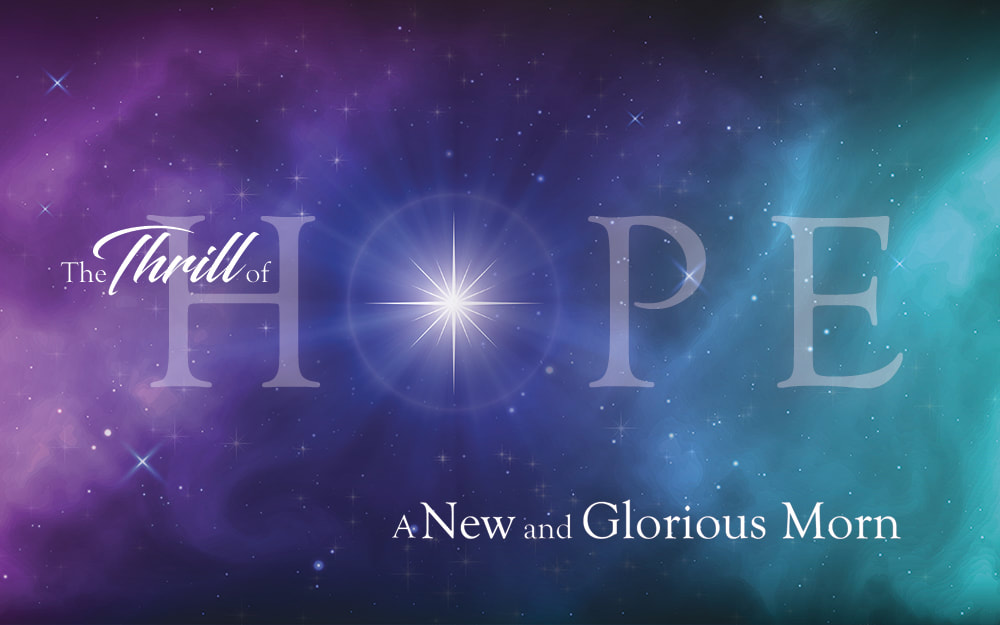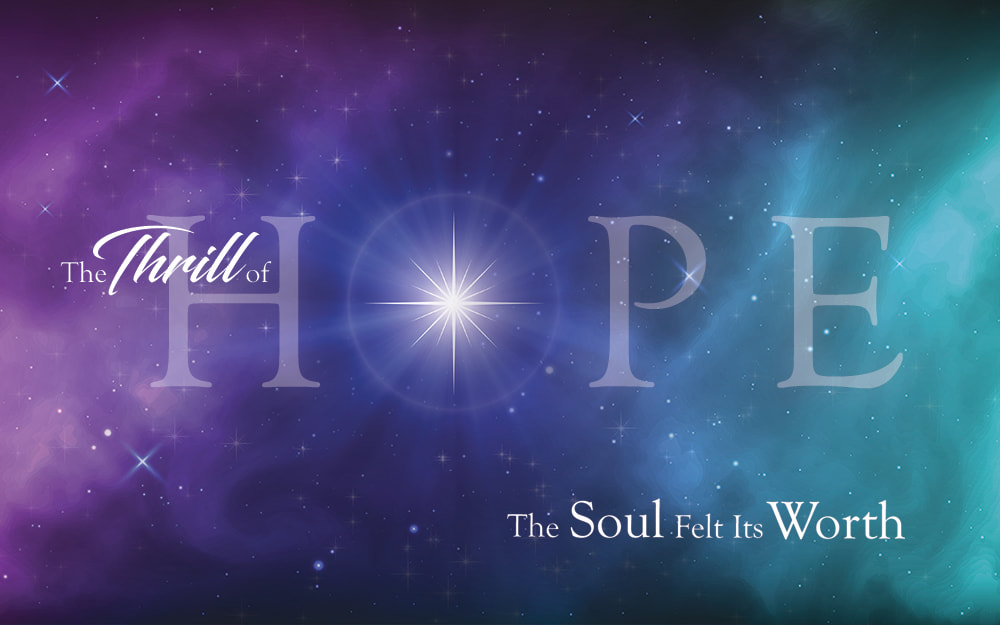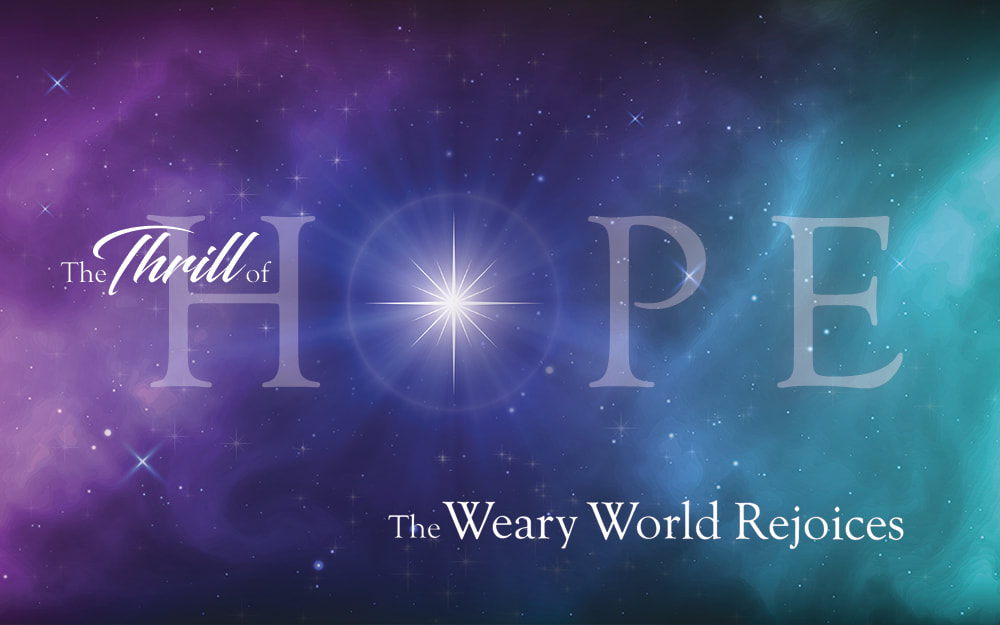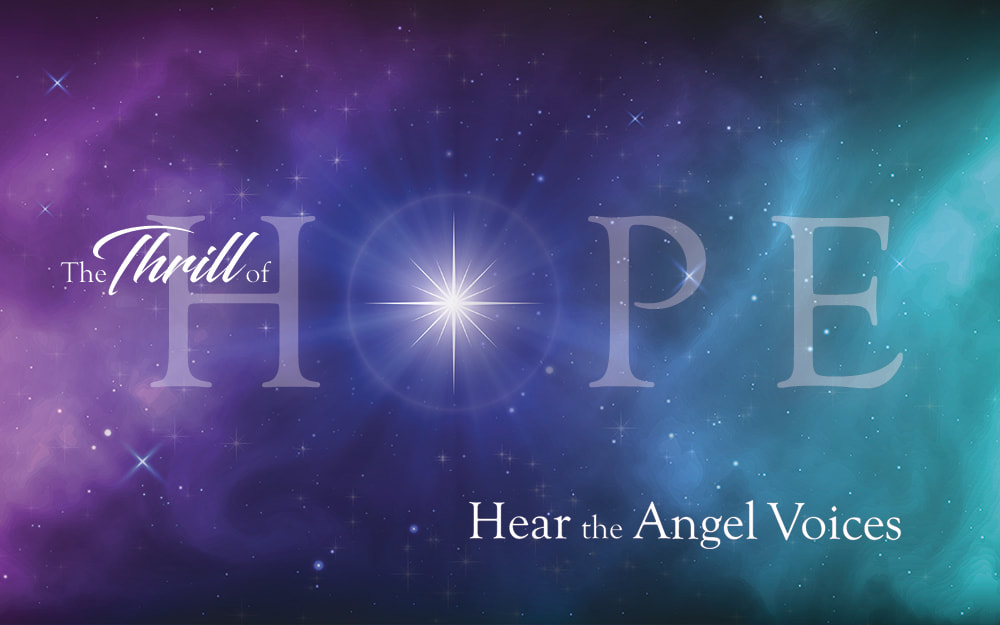First UMC Newport, TN
It is truly a thrill to see what might be possible through the power of hope, and no season is more filled with hope than Advent and Christmas. Many people see hope as a beautiful and graceful bird, light and airy, making its way into our lives softly and tenderly. But hope is often not experienced as a tender reality. Instead, hope is scrappy, persistent, and stubborn. The world tells us to give up, to forget promises, to embrace cynicism. Yet tenacious hope in God’s presence and promise stands its ground; it will not allow us to take the easy way out.
As we engage with the words of the prophets throughout this series, we will witness the insistent hope of people who should have given up a long time ago. It carried them through the darkest times and enabled them to witness the arrival of God incarnate, Jesus Christ: the embodiment of relentless hope.
As we engage with the words of the prophets throughout this series, we will witness the insistent hope of people who should have given up a long time ago. It carried them through the darkest times and enabled them to witness the arrival of God incarnate, Jesus Christ: the embodiment of relentless hope.
|
Ezra and Nehemiah tell the story of a people returning: returning from exile, brokenness, and pain. This is the story of a people returning to their land, their homes, and their God. In the rebuilding of the temple, the hope for restoration are realized. In the reshaping of Judah’s worship, the hope of relationship with God is known in a new way. Even so, God’s presence will be made even more real with the coming Messiah.
The book of Isaiah spans hundreds of years of Israel’s history, and not of all of those years were happy. Even in the darkest times, Isaiah challenges God’s people not only to worship in God’s hope, but to live in God’s hope. Worship is simply rehearsal for every other part of our lives. This is not an arrogant hope that places us above others, but a loving hope that is centered in God’s grace for the least of these.
|
“You will be my people, and I will be your God.” The book of Jeremiah was written for survivors of war and exile, people who had no reason for hope after the pain they endured. Yet in one of the most powerful visions of the Old Testament, Ezekiel witnesses a valley of dry, lifeless bones coming to life. In the hope of God, things that were dead are resurrected. In the hope of God, the impossible becomes more than possible: it is the very foundation of our faith.
A connection can be drawn from the prophet Isaiah directly to the words of hope proclaimed by these angels. After centuries of unfulfilled hope that has stubbornly survived exile, suffering, separation, and heartbreak, God’s people are about to receive hope incarnate. We hold our collective breath and dare to believe that our hopes are about to become a reality . . .
|



